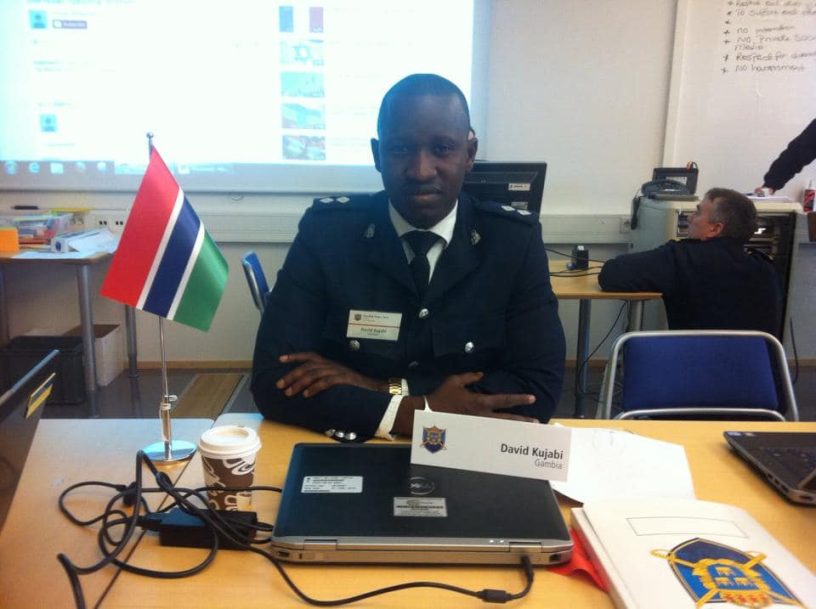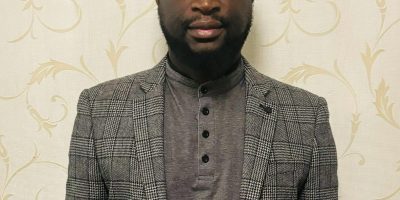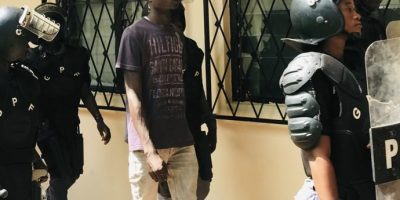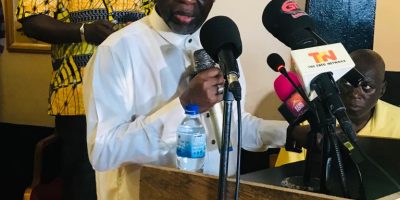 by David Kujabi
by David Kujabi
During a study visit to Northern Ireland in May 2019, I was privileged to attend a meeting with an Ex-British soldier who had served in Northern Ireland during the period of ‘THE TROUBLES’. For those not familiar with this, The Troubles were the 1968 to 1998 Northern Ireland violent conflict between Protestant Unionists (loyalists) and Roman Catholic Nationalists (republicans) – the Irish Republican Army (IRA) stemmed from the latter.
During his deliberation, the ex-soldier talked about military life, from training to service and although I am no soldier, I understood fully what he was talking about and could relate with it. He indicated that the training process and how it is programmed instils in one a feeling of being part of a brotherhood. He indicated that a soldier is made to believe that your country was the good one and any fight it was involved in was the good fight. He added that during conflicts, a soldier does not care about the thoughts, feelings and views of their perceived enemy, in most cases, they do not in fact bear any hatred for them but for some political course, would readily kill.
So too a police officer would arrest an offender and prosecute them without regard to the person’s feelings, circumstances etc. People often wonder why police officers try to disperse demonstrators sometimes to the extent of using brute force even when they know that the demands being made are genuine and could be of benefit the police themselves. Well I am still trying to figure out why but if one considers the training and me versus us mentality, one could see why. I remember during my first days of training as a police officer, we were told by our instructors that they were going to stamp out the civilian in us and make us security service personnel or if you like make soldiers out of us. For me, this is how THEM versus US mentality emerges.
My training in both The Gambia and Ghana did a lot in preparing me to become a good policeman and an accomplished officer. On reflection, however, I realise that training programmes meant to make one a law enforcement officer and protector of life and property could easily produce bad cops or soldiers.
A research paper by Hills succinctly describes African police forces as generally “brutal, corrupt, and badly paid” (Hills 2000: 4). On reading this statement, my public relations antenna was tempted to dismiss the claim but my objective self thought best to give it serious scrutiny. I am a proud police officer and will defend the work and integrity of the Gambia Police Force (GPF) in every way I can, but I must admit, GPF is not a perfect institution and like many others, it is fraught with its problems.
The inclusion of Security Sector Reform (SSR) in the transition process lends evidence to this fact. The December 2017 SSR report, highlights the need for a national security policy and a civilian-controlled security sector founded on democratic institutions, norms and processes to promote human rights and rule of law. The National Security Policy launched in 2019, is designed to shift from merely providing National security to ensuring Human Security. In seeking answers to what could be wrong, I crave your indulgence to delve a little into the history of GPF.
HISTORY OF POLICING IN THE GAMBIA
In 1816, the British established Bathurst as a base to secure and protect trade on the River Gambia, to check French influence in the region, and to combat the slave trade. Throughout the almost 150 years between the founding of Bathurst and Gambian independence in 1965, state policing was primarily intended to maintain British control and impose order in the territory. This implies that policing was founded not as an institution for the protection of people but rather for the suppression of dissent in the protection of British interests.
In 1855, the British established the River Police which is regarded as the Gambia’s first professional law enforcement body, with a responsibility to control smuggling over the River Gambia, enforce taxation, and prevent insurgencies. Its main function was to control smuggling over the River Gambia, enforce taxation, and prevent insurgencies. From the foregoing, it is evident that the penetration of official (colonial and early independence) state policing in the Gambia was more an instrument of domination than a social service or a source of protection and security.
After independence, the role of the police changed to the protection of life and property, law enforcement and crime prevention. However, the training system and policing style remained unchanged as it continued to serve the interest of the government. After the 1981 coup attempt, the police underwent a remaking and expansion which saw the introduction of the gendarmerie and formation of Gambia Armed Forces.
The 1994 military coup which brought Jammeh to power and subsequent coup attempts are evidence of turmoil associated with state security forces. To consolidate his power, the government used the security forces to suppress dissent and ensure compliance with his wishes. Central to the security institutions, training schools have an important role in preparing personnel and ensuring effective and professional implementation of duties. However, the training and practice of security in the Gambia revolved around loyalty and patriotism to Jammeh rather than the state. With over 165 years of existence, the recruitment and training program of GPF has not undergone many changes.
RECRUITMENT AND TRAINING
During the colonial era going down to the days of Field Force, recruitment, especially into the other ranks of the police, was not emphasized on academic excellence but rather on height, physical strength and fitness. Admittedly, very smart people were recruited and these rose through the ranks to become very accomplished officers. Until its last recruitment, GPF continued to admit Grade 9 leavers into its rank. Despite this, however, GPF also recruits university graduates into the cadet core of its ranks.
For an institution which was regarded one for school dropouts, GPF today boasts of over 130 university graduates in diverse fields and I dare say the largest in comparison to any government institution. I must mention the vision of former IGP Yankuba Sonko who started the unprecedented recruitment of large number of university graduates as well as the sponsoring of serving officers to pursue higher education. Despite the poor performance of some (not all) lowly educated as well as or incorrigibly bad personnel, GPF is rich in human resources which if harnessed and managed well would make it an enviable force.
The training program and facilities of GPF certainly need a huge boost. It is a fact that a person’s environment, socialization, the treatment they get, reflects on their dealings and relationship with others. Recruits on training were often told by their instructors that the civilian in them was going to be stamped out to be replaced by the spirit and thinking of a soldier. This creates the – them versus us – feeling which makes security personnel bear a superior attitude over the civilians.
Severe punishment, often unnecessary, are often meted on recruits (monkey dance, frog jump, pushups, squat etc.) are common forms of punishment. Instructors could often command one to carry out irrelevant, senseless and meaningless things all in the name of instilling a spirit of obedience to orders. I remember I was once asked to run about a 200 metres distance just to pluck a leave and bring it back. Sometimes during break from drills, we were asked to go and bath with our clothes on and stay in soaked clothing until they are dry. It is little surprise that when criminals are arrested some officers subject them to the same kind of treatment.
It was common to hear a soldier address a civilian as – ‘you dirty civilian’. Security personnel carry out their work as if they were doing civilians a favour, often asked for bribes and observed little or no customer care. Therefore, the training and experience of Gambian security personnel are to a large extent at odds with democratic and civic-centred security values. The Security Sector Reform Assessment Report (2017) highlighted gaps in training as a bottleneck to reforming security institutions. For SSR to succeed, there is a need to train and reorient security services on their role in a democratic state with a focus on human rights and human security.
IN THE SERVICE OF NATION
The life of a Gambian security service personnel is a very challenging one. The work is both dangerous and highly demanding yet the pay too meagre. A young person enlists into the police force with a desire to serve with diligence and utmost professionalism. They receive “training”, don the uniform with pride and graduate eager to go out and protect life and property. However, during the line of duty, reality begins to sink in. You begin to realise that the resources at your disposal to undertake your daunting task are hardly available. At an institutional level, you are under-resourced – infrastructure, communication, transportation and other needed resources are either scarce or non-existent. At a personal level, your family responsibilities increase but your earnings are way too small to even cover your rent and transportation costs.
Being a God-fearing Muslim/Christian and wanting to be a good officer, you do your best to serve humanity with due diligence. However, around you, your colleagues are receiving bribes and abusing their powers in return for favours. Many continue to do their best and remain incorruptible but many give in to the pressure of mounting family responsibilities and fall prey of acrasia – a lack of self-discipline, by which a person acts contrary to usual judgement. In other words, conditions in the systems help breed corrupt officials. This fact is not only true to the police but in almost all government departments in The Gambia, hence the need for not only security sector reform but also civil service reform.
Despite the many odds, there are many excellent personnel within Gambia security institutions. Ten years of service has opportune me to meet and work with a lot of people who love the Gambia and want the best for it. They are selfless in their service and are ready to do the job at whatever time and circumstances. I have met genuinely caring people who will go out of their way to represent to police and country well. Some will even dip from their meagre earnings to do state work.
For Gambia’s oldest institution to have survived this long and continue to maintain peace and stability despite the evidence of government neglect, is because of the many selfless people who have served in it. Many police and security personnel own a house today not because of their wages but because they have been lucky to go on peacekeeping missions.
Despite the meagre resources, non-motivation and dire working conditions, Gambia Police Force continues to be the livewire and backbone of Gambia’s security. To the traffic officer standing under the scorching sun on an empty stomach cheerfully controlling traffic, hats off to you. To the broke police officer who refuses a bribe and does your job well, outpouring of love to you, to all the brave men and women who patrol the streets during day or night, rain or shine, I salute you all.
PLAUDITS




Ma sha Allah great and thanks for sharing